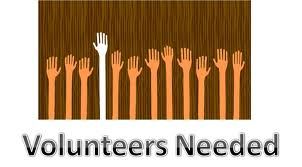[Note: The following set of guidelines for social networking were originally composed for use with an organization known as ReachGlobal. Lindsay, their Dir. of Special Initiatives, author of the document, was kind enough to grant us permission to publish it here as a seed for further thoughts on how to relate to Facebook. Thanks for your work, your unselfishness, and your willingness to help all of us grapple with these issues, Lindsay!]
Introduction
Many ReachGlobal staff participate in some form of social networking (Facebook, Twitter, MySpace, etc.). Media Week (March, 2009) indicated 67% of people now use some form of “member communities” like Facebook instead of email when they want to connect with current friends, former classmates, colleagues, and/or family members. However, many people don’t fully understand the advantages, disadvantages or security issues involved in participating in the social networking world. As global staff in ministry, it’s important for you to understand this information so you can make wise choices regarding information you put online about yourself and others, as well as when you look at social networking sites as a potential platform for your ministry.
The following is a general overview of advantages, disadvantages and security issues for you to consider as missionaries and ReachGlobal staff.
Advantages of Social Networking Systems
1. You can communicate to a large number of people in a public way.
2. You can update large numbers of people on your family and ministry using pictures, notes or videos.
3. You can create “groups” that you want to communicate directly with. This is helpful if you want to communicate with only supporters at one point or only family members.
4. There are multiple security options available (depending on the social networking site you use). On some sites, the user can change/modify the security options to an option they are comfortable with. For example, on Facebook you have the option of making your page available only to those people you have permitted to be your “friend.” The general public cannot have access to your information unless you allow it.
5. They provide fundraising options for events, projects or causes where an individual or group is trying to raise money.
6. You can get RSS feeds or updates on friends, family members or causes automatically sent right to your email inbox.
7. The next generation of individuals are utilizing these sites, which make them a potential platform for recruiting.
Disadvantages of Social Networking Systems
1. Information about you or your ministry is available to the public.
2. Social networking is trendy and can come and go within a few years.
3. Ministry and personal information can sometime get “blurred.” For example, if a supporter comes to your social networking site hoping to find information about your ministry, but finds 90% of the information regards your family and hobbies, they might get frustrated or be disappointed
4. If used to raise funds, note that social networking sites take a percentage of the profits. If you use these sites to raise funds for ministry purposes, ReachGlobal also takes a percentage (10%) for service allocation. In essence, you have two entities taking a percentage off raised funds. Also, be aware of the latest trends regarding “giving” via social networking sites like Facebook.
5. It is difficult for the EFCA and ReachGlobal to track donors who donate to events, projects or causes for future appeals by you or your ministry team. This also makes it difficult to follow up to properly thank and continue an ongoing relationship with a donor by the EFCA and ReachGlobal.
Security Issues and Social Networking Systems
1. Each social networking system (Twitter, Facebook, MySpace, etc.) has its own security policies and procedures. They also each have different levels of security that you should be aware of BEFORE you create a profile or site.
2. It is up to the end user (you) to become informed about the security policies of these sites. Social Networking sites are not obligated to give you security information before you create a profile, but they are obligated to post it for you to find and read. For systems like Facebook, you have control over how much of your profile information is public for others to see. However, the initial default for many of these sites is for EVERYONE to see EVERYTHING about you. As a user, you must go in and modify those security settings.
3. Consider the pictures, names, contact information and locations you post on your social networking site. Ask the following questions:
- Am I putting anyone at risk on my site by mentioning their name or posting their picture?
- Have I posted pictures of nationals or of my kids/family that I do not want people to view?
- If I post my contact information, I am OK with anyone in the world contacting me?
- Does anything on my sight prevent me or other ReachGlobal staff from acquiring a visa for the ministry they are called to do?
- Does my profile connect any CAC personnel to ReachGlobal or to each other?
- Do the activities I post or groups I create have any sensitive information in them?
4. Err on the cautious side when referencing other ReachGlobal staff, ministry partners and/or nationals on your site. All ReachGlobal staff should respect the rights and privacy of others who may not want their information public for anyone to access.
Helpful Links to Learn More
- Compare advantages and disadvantages of prominent social networking sites: http://social-networking-websites-review.toptenreviews.com/.
- If your kids are active users of social networking sites, this article is helpful to know how to protect your kids: http://www.onguardonline.gov/topics/social-networking-sites.aspx.
- Still unclear about what social networking is? Read the following article to understand the basics of social networking: http://www.whatissocialnetworking.com/.
Conclusion
As you utilize Twitter, Facebook, MySpace and other social networking sites, keep in mind that ReachGlobal’s position is the following:
1. ReachGlobal does not have a policy for personnel to have or not have a social networking site. The choice to participate in these communities is up to individual ReachGlobal staff. However, we do ask you to exercise responsible etiquette and information sharing when utilizing these sites.
2. ReachGlobal does not provide technical support, advice or help regarding social networking sites (Social networks have their own help desk. Refer to their Web sites for technical support).
3. Because Social Networking is often personal in nature, please do not use organizational logos on your sites. The only exception would be if the event, project or cause you are promoting on the site is organized by and for a ministry of ReachGlobal. To learn more about communication guidelines for ReachGlobal staff, contact re*********@**ca.org.
4. There are ways for you to put the EFCA logo on your social networking site as a live link directly to the EFCA Give Now page for donors. This means you can still use social networking sites for fundraising options, but can opt to link to the EFCA donation page instead of having people give through the social networking site itself. This will save you the 5% the social networking site requires if you use their site for fundraising. At this point, the logo can only be posted to the “wall” of your site. Learn more about this by contacting re*********@**ca.org.
As the use of Social Networking sites increases, there will continue to be opportunities to utilize these sites to leverage your ministries. Please stay well informed about security issues and use necessary caution. At the same time, engage yourself in the world of technology where opportunities for impact, influence and proclamation of the Gospel are readily available. The national office will continue to send out helpful articles for you to stay well informed regarding utilization of these tools.











helpful questions to think about – thanks for posting this
Thanks for posting this info, Brigada! I will definitely be sharing some of these issues/ideas with my social networking class. This is excellent information.
Will all the good points in this article, I disagree with the fact that you say a disadvantage of using social media is that it is ‘trendy’ and will fade out in a few years. The actual sites facebook and twitter may fade away, but the concept of how they are teaching us to use technology will remain. I think some people think that ‘once all this social media craze is over we will go back to using email the way we did before.” Nothing could be further from the truth. Social media is influencing the way we relate to each through technology in a business and personal sense. It will continue to mold business, the way. After facebook and twitter are gone, there will probably be something much more sophisticated that changes the way we relate to each other again. Like any other technology it will need to be updated, change and morph. That is no reason NOT to use it.